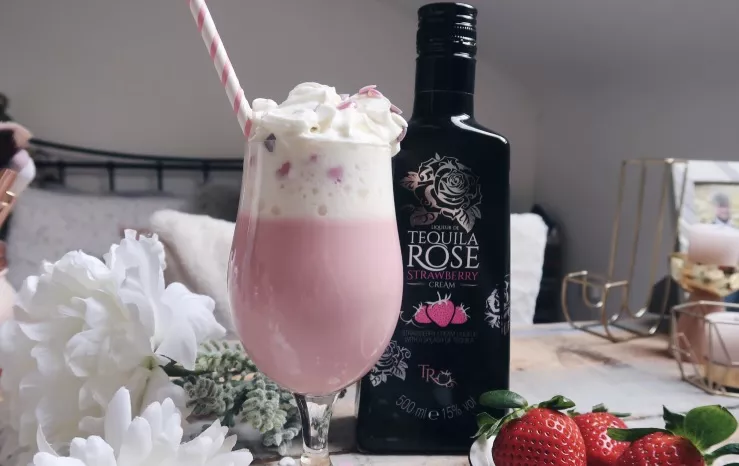When it comes to refreshing cocktails, few can rival the timeless allure of the Mojito. Its crisp combination of mint, lime, rum, sugar, and soda water has made it a favorite among cocktail enthusiasts worldwide. However, for those seeking a non-alcoholic alternative without sacrificing flavor, the Virgin Mojito steps in as a delightful counterpart. But what truly sets these two beverages apart? Let’s delve into the nuances and ingredients that distinguish the classic Mojito from its virgin counterpart.
Origin and Evolution
To understand the disparity between the Mojito and the Virgin Mojito, it’s essential to explore their origins. The Mojito traces its roots back to Cuba, believed to have been concocted in the early 16th century. Its evolution over centuries has seen variations in ingredients and preparation methods, yet its essence remains intact – a harmonious fusion of sweet, sour, and herbal notes.
In contrast, the Virgin Mojito emerged more recently, catering to the increasing demand for non-alcoholic alternatives. While the Mojito’s lineage is steeped in Cuban culture and history, the Virgin Mojito embodies modern sensibilities, offering a refreshing alternative suitable for all palates.
Alcohol Content
The most apparent distinction between the Mojito and its virgin counterpart lies in the presence of alcohol. The traditional Mojito features white rum as a primary ingredient, infusing the cocktail with a subtle kick and depth of flavor. Conversely, the Virgin Mojito omits this alcoholic component entirely, making it an ideal choice for teetotalers, designated drivers, or those simply opting for a booze-free beverage.
The absence of rum in the Virgin Mojito does not diminish its appeal. Instead, it highlights the vibrancy of its other components, allowing the mint, lime, and sugar to shine brightly with each invigorating sip.
Flavor Profile
While both the Mojito and Virgin Mojito share similar foundational ingredients, their flavor profiles diverge due to the exclusion of rum in the latter. The Mojito boasts a nuanced amalgamation of sweet, citrusy, and herbal notes, with the rum imparting a subtle warmth and complexity to the ensemble.
In contrast, the Virgin Mojito leans heavily on the interplay of mint, lime, and sugar, delivering a zesty and invigorating flavor profile. Without the presence of alcohol, each sip of the Virgin Mojito bursts with crisp freshness, making it an ideal choice for hot summer days or as a revitalizing pick-me-up at any time.
Preparation Process
Another notable discrepancy between the Mojito and Virgin Mojito lies in their preparation processes. Crafting the perfect Mojito entails muddling fresh mint leaves with lime wedges and sugar, followed by the addition of rum, ice, and soda water. This meticulous method ensures that the flavors meld harmoniously, resulting in a well-balanced cocktail with a delightful effervescence.
Conversely, the Virgin Mojito follows a similar preparation routine, albeit with a crucial omission – the addition of rum. By adhering to the traditional steps of muddling mint and lime with sugar and soda water, the Virgin Mojito retains the essence of its alcoholic counterpart while catering to a broader audience.
Occasions and Preferences
The choice between a Mojito and a Virgin Mojito often boils down to personal preferences and the occasion at hand. While the Mojito reigns supreme as a quintessential cocktail for social gatherings, evenings out, or leisurely afternoons by the pool, the Virgin Mojito offers a versatile alternative suitable for all occasions.
For individuals abstaining from alcohol or seeking a lighter option, the Virgin Mojito provides a satisfying solution without compromising on flavor or complexity. Its invigorating blend of citrus and mint makes it an ideal accompaniment to brunches, lunches, or as a refreshing palate cleanser between courses.
Cultural Significance
Beyond their gustatory appeal, both the Mojito and Virgin Mojito hold cultural significance that extends beyond the realm of cocktails. The Mojito’s association with Cuba evokes images of sultry nights, rhythmic music, and convivial gatherings, encapsulating the island’s vibrant spirit and joie de vivre.
On the other hand, the Virgin Mojito embodies inclusivity and accessibility, catering to individuals of all ages, dietary preferences, and cultural backgrounds. Its emergence reflects a broader societal shift towards mindful consumption and the celebration of diversity in culinary experiences.
Health Considerations
In addition to their culinary attributes, the Mojito and Virgin Mojito also prompt considerations regarding health and wellness. While the Mojito’s alcohol content necessitates moderation, the Virgin Mojito offers a guilt-free indulgence, free from the potential side effects associated with alcohol consumption.
Moreover, the Virgin Mojito’s emphasis on fresh ingredients, such as mint and lime, imbues it with nutritional benefits, including vitamins, antioxidants, and digestive aid properties. As such, it serves as a wholesome alternative for those prioritizing health-conscious choices without compromising on taste or enjoyment.
Conclusion
In summary, the difference between a Mojito and a Virgin Mojito extends beyond the absence of alcohol, encompassing nuances in flavor, cultural significance, and occasion suitability. While the Mojito remains a beloved classic, steeped in tradition and imbued with historical resonance, the Virgin Mojito represents a contemporary evolution, embracing inclusivity and catering to diverse preferences.
Whether enjoying a leisurely afternoon on a sun-drenched terrace or raising a glass in celebration with friends, the choice between a Mojito and a Virgin Mojito ultimately reflects individual tastes, values, and the desire for a memorable and refreshing libation. So, whether you prefer the spirited zest of a traditional Mojito or the alcohol-free allure of its virgin counterpart, one thing is certain – both offer a delightful escape, one sip at a time.


